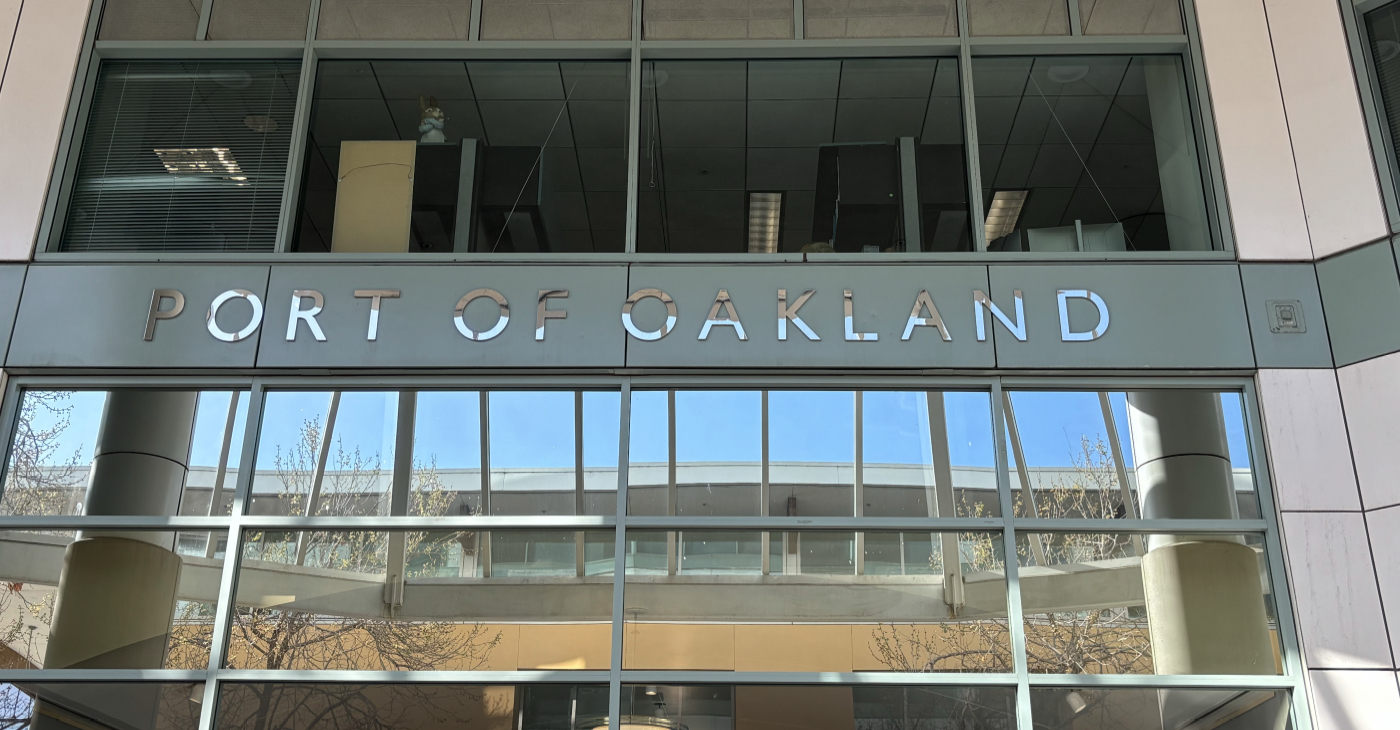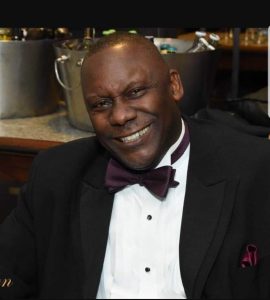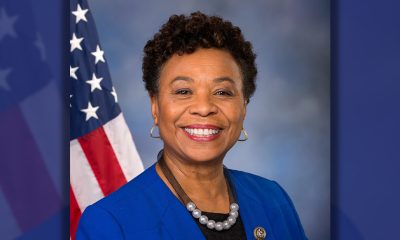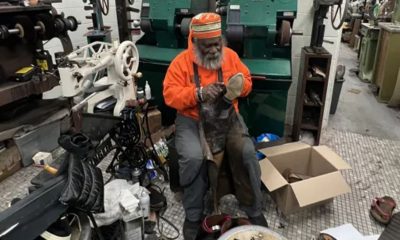Community
Mpls & St. Paul NAACP chapters unite to target state’s racial wealth gap
MINNESOTA SPOKESMAN-RECORDER — A new plan is being formed to help address the racial wealth gap in Minnesota
By Stephenetta (isis) Harmon
A new plan is being formed to help address the racial wealth gap in Minnesota. Last month, the National NAACP announced the creation of an Economic Inclusion Plan (EIP) for the Twin Cities. The forthcoming plan aims to address the myriad racial disparities and issues affecting Black communities in the Twin Cities — from mass incarceration and economic injustice to entrepreneurship and rising education costs.
The national organization previously released plans for three cities in February 2018. “Minneapolis and St. Paul were chosen due to the recent social unrest surrounding the police shootings of Philando Castile and Jamar Clark,” said Joel Franklin, JD, NAACP Minnesota/Dakotas Area State Conference President.
A who’s who of Black leadership gathered Dec. 10, hosted by the organization’s Minneapolis and St. Paul chapters, to begin the work and gather community input for the plan which is set to be released this spring.
Moderated by Minneapolis NAACP President Leslie Redmond, panelists shared their expertise with the more than 100 attendees who packed the house at the Minneapolis Urban League in North Minneapolis.
Redmond told the MSR that they handpicked panelists from both Minneapolis and St. Paul areas “recognizing that these economic disparities are impacting both of us and that we need to be able to work together and move forward.”
Their conversations focused on solutions and pathways towards change, including Attorney General Keith Ellison’s call to end the war on drugs.
“I think it’s incredibly horrible to deprive someone of their freedom for something that is absolutely legal in three or four states of our union, [and] Mexico and Canada,” said Ellison. We have “to always oppose these mandatory minimum sentences, particularly in the drug area.”
“As an attorney, I can tell you it is more difficult to address when somebody is entangled in the criminal justice system than stopping them from ever getting there,” added Dr. Artika Tyner, associate vice president of diversity and inclusion, University of St. Thomas.
Ellison noted how systems use incarceration as a tool for certain populations “to be economically stronger” while draining Black communities and other communities of color. “What happens to the household economics when a parent goes to prison? What happens to that kid’s income?
“I know a guy who has not seen his dad face-to-face in over 11 years,” Ellison said. “He’s coming home. What will that mean to the family even if Dad just makes minimum wage? That kid’s income will go up.”
Bridging the wealth gap
Dr. Bruce Corrie, planning and economic development director for the City of St. Paul, explored the gap between the average income of St. Paul’s Black households and their housing costs, making most neighborhoods unaffordable to them. “We have a serious income problem that needs to be addressed. How do we build wealth? We really have to focus attention on very practical ways of building wealth at every level.”
Gary Cunningham, president and CEO of Meda, shared his visions for activating Black and communities of color to access entrepreneurship capital, referring to a report that it would take over 240 years for Blacks to accumulate the wealth of a White family today.
Tyner noted that when she received the same report in 2016, it was 228 years. “The gap will continue to grow because it’s like me telling you to get from home plate to a home run and I’m already on third base.”
“If we really want to change the game,” said Cunningham, “we have to open up the opportunities, and we’ve got to be ready to compete with those opportunities once they open up. But, we can’t do it just sitting in here.
“We got to go to the legislature, city hall, the County, because when you look at the numbers, there’s no way, statistically, this can happen,” he continued. “It’s just impossible to have that kind of outcome unless there’s something else happening in the system that keeps you from getting opportunities.”
Holding the system accountable
Me’Lea Connelly, Blexit founder and co-founding director of Black-owned credit union Village Financial, called for more than new laws to be passed. She challenged attorneys to sue for equitable treatment based on current laws.
“There’s a lot of data that we heard earlier that…Minnesota has been studied to death [for its] inequities, but there aren’t a lot of lawsuits,” said Connelly. “If there’s no accountability, no fear of consequence, then institutions like Wells Fargo — who preyed on Black communities and were the reason why we lost a huge amount of generational wealth — only get a slap on the wrist,” she said.
“I look back at ‘Nader’s Raiders’ and how that small initiative shaped corporate accountability for our country for generations to come,” Connelly continued, referring to a group of law students led by Ralph Nader in the ’60s and ’70s.
“[They were] a group of attorneys that sued the pants off of corporations to make them create regulations to make sure people were safe, specifically in the car industry. I would love it if the Black community in the United States became one of the most litigious communities in the world, because we’ve got plenty of reason to expose everybody,” she said.
Working together
The panel also called for those working toward change to build bridges across organizations and to lead by example.
“You can have all the skills and talent in the world as an entrepreneur, as a college graduate, but if someone does not show you the way, it does not matter,” said Tyner. “A job and a degree cannot bridge everything — build a ladder and help to create new opportunities.”
“I think the time has come for us to collectively go beyond our own egos and our own interest and our own visions to work together to build and take advantage of this momentum and make something really happen,” said Corrie. “But it can happen only if the whole village is involved.”
“But we got to be organized,” Cunningham added. “We’ve got to be on point and we’ve got to demand what we want or it won’t happen.”
The conversation continues at the Minneapolis NAACP’s State of Minneapolis inaugural address on Mon., Jan. 28, 6-8 pm at North Community High School,1500 James Ave. N., Minneapolis.
For more information, visit mplsnaacp.org.
This article originally appeared in the Minnesota Spokesman-Recorder.
Activism
Oakland Schools Honor Fred Korematsu Day of Civil Liberties
Every Jan. 30, OUSD commemorates the legacy of Fred Korematsu, an Oakland native, a Castlemont High School graduate, and a national symbol of resistance, resilience, and justice. His defiant stand against racial injustice and his unwavering commitment to civil rights continue to inspire the local community and the nation. Tuesday was “Fred Korematsu Day of Civil Liberties and the Constitution” in the state of California and a growing number of states across the country.

By Post Staff
Every Jan. 30, OUSD commemorates the legacy of Fred Korematsu, an Oakland native, a Castlemont High School graduate, and a national symbol of resistance, resilience, and justice.
His defiant stand against racial injustice and his unwavering commitment to civil rights continue to inspire the local community and the nation. Tuesday was “Fred Korematsu Day of Civil Liberties and the Constitution” in the state of California and a growing number of states across the country.
One OUSD school is named in his honor: Fred T. Korematsu Discovery Academy (KDA) elementary in East Oakland.
Several years ago, founding KDA Principal Charles Wilson, in a video interview with anti-hate organization “Not In Our Town,” said, “We chose the name Fred Korematsu because we really felt like the attributes that he showed in his work are things that the children need to learn … that common people can stand up and make differences in a large number of people’s lives.”
Fred Korematsu was born in Oakland on Jan. 30, 1919. His parents ran a floral nursery business, and his upbringing in Oakland shaped his worldview. His belief in the importance of standing up for your rights and the rights of others, regardless of race or background, was the foundation for his activism against racial prejudice and for the rights of Japanese Americans during World War II.
At the start of the war, Korematsu was turned away from enlisting in the National Guard and the Coast Guard because of his race. He trained as a welder, working at the docks in Oakland, but was fired after the bombing of Pearl Harbor in 1941. Fear and prejudice led to federal Executive Order 9066, which forced more than 120,000 Japanese Americans out of their homes and neighborhoods and into remote internment camps.
The 23-year-old Korematsu resisted the order. He underwent cosmetic surgery and assumed a false identity, choosing freedom over unjust imprisonment. His later arrest and conviction sparked a legal battle that would challenge the foundation of civil liberties in America.
Korematsu’s fight culminated in the Supreme Court’s initial ruling against him in 1944. He spent years in a Utah internment camp with his family, followed by time living in Salt Lake City where he was dogged by racism.
In 1976, President Gerald Ford overturned Executive Order 9066. Seven years later, the 9th Circuit Court of Appeals in San Francisco vacated Korematsu’s conviction. He said in court, “I would like to see the government admit that they were wrong and do something about it so this will never happen again to any American citizen of any race, creed, or color.”
Korematsu’s dedication and determination established him as a national icon of civil rights and social justice. He advocated for justice with Rosa Parks. In 1998, President Bill Clinton gave him the Presidential Medal of Freedom saying, “In the long history of our country’s constant search for justice, some names of ordinary citizens stand for millions of souls … To that distinguished list, today we add the name of Fred Korematsu.”
After Sept. 11, 2001, Korematsu spoke out against hatred and discrimination, saying what happened to Japanese Americans should not happen to people of Middle Eastern descent.
Korematsu’s roots in Oakland and his education in OUSD are a source of great pride for the city, according to the school district. His most famous quote, which is on the Korematsu elementary school mural, is as relevant now as ever, “If you have the feeling that something is wrong, don’t be afraid to speak up.”
Community
For Cervical Cancer Month, Medical Community Focused on Education
January was Cervical Cancer Awareness Month. Physicians, advocates and others in the medical community commemorated the month by raising awareness about a form of cancer they say is highly preventable and treatable. Cervical cancer is caused by a virus called the human papillomavirus (HPV) and it develops slowly over time but can be prevented with proper care in girls as young as 13 years old.

By Magaly Muñoz
January was Cervical Cancer Awareness Month.
Physicians, advocates and others in the medical community commemorated the month by raising awareness about a form of cancer they say is highly preventable and treatable.
Cervical cancer is caused by a virus called the human papillomavirus (HPV) and it develops slowly over time but can be prevented with proper care in girls as young as 13 years old.
Sonia Ordonez, an OBGYN and gynecology surgeon at Kaiser Permanente, stated that as soon as people with cervixes reach the maturity reproductive age, they should start taking preventative measures like getting the HPV vaccine. The vaccine involves a series of two-doses for people aged 9 through 14 or three-doses for people 15 through 45 years old.
“I see a lot of young women who can’t remember or may not have gotten [the vaccine] when they were younger, or maybe got one, but we can give them the series of vaccines and restart at any point in time,” Ordonez said.
She said that cervical cancer is not the only cancer caused by HPV. Strains of the virus can also lead to throat, anal and penile cancers.
Screening is also an effective way to check for cervical cancer and should be done every three years after someone turns 21, doctors recommend. It is best to start as early as possible to catch occurrences early.
Ordonez said that this cancer is also more likely found in people of color and has led to more deaths overall.
A Mayo Clinic article published last month stated that Black women are more likely to be diagnosed and die of cervical cancer, compared to White women in the U.S.
2,000 Black women are diagnosed every year with cervical cancer and 40% die as a result.
“This disparity is not due to genetic differences among White, Black or Hispanic women, but rather related to systemic racism, access to healthcare and socioeconomic factors,” Dr. Olivia Cardenas-Trowers, a Mayo Clinic urogynecologist, said in the article.
Ordonez stated that immigrant women are also highly susceptible to the cancer, as many Latin American countries may not have accessibility to screenings or lack of insurance makes it harder for them to get tested.
Hispanic women are 40% more likely to be diagnosed with cervical cancer, and 30% more likely to die from it, as compared to non-Hispanic White women, according to the Office of Minority Health.
Family medicine physician, Joy Anyanwu, stated that the pandemic contributed to hesitancy about getting cervical cancer screenings among some women. Other factors are people’s aversion to vaccines, parents not wanting to believe that their children are or will become sexually active, and doubt about the overall effectiveness of the vaccine.
“The vaccine is very safe — over 97% effective in preventing cervical cancer,” Anyanwu said. “Even if you aren’t having sex, the earlier you start would actually help.”
Anyanwu said she understands that parents might not want to ask questions about their children’s reproductive health, but it’s a mindset that can be a barrier to having important conversation about prevention or care.
To keep families their families and communties healthy, the doctor emphasized that people should prioritize keeping up with their vaccine series and going to screenings every year.
Bay Area
Port of Oakland Commission Votes to Change Oakland Airport to ‘San Francisco Bay Oakland International Airport’
The Port of Oakland Commission voted unanimously to change the name of Metropolitan Oakland International Airport to San Francisco Bay Oakland International Airport at a commission meeting Thursday afternoon. The Port initially announced the name change on March 29, claiming that the change will attract more passengers and enhance the airport’s visibility. They contend that the airport often gets neglected by the public’s lack of knowledge of Oakland’s proximity to San Francisco.

By Magaly Muñoz
The Port of Oakland Commission voted unanimously to change the name of Metropolitan Oakland International Airport to San Francisco Bay Oakland International Airport at a commission meeting Thursday afternoon.
The Port initially announced the name change on March 29, claiming that the change will attract more passengers and enhance the airport’s visibility. They contend that the airport often gets neglected by the public’s lack of knowledge of Oakland’s proximity to San Francisco.
“We want people to know where Oakland is and how beautiful our city is. We want them to visit, we want them to spend their money, and we want to keep our money into our local economy,” Port Commission President Barbara Leslie said at the meeting.
The commissioners shared anecdotal experiences and research to explain how this new name change will elevate and add to the growth of Oakland, not take away from their Bay Area neighbors.
The Port claimed that local residents had been asking for more options in domestic and international flights, but in order to do that, outside travelers need to be aware of Oakland’s presence first.
Since the announcement of the new name, San Francisco leaders strongly opposed the suggestion for a change, the City Attorney going as far as threatening legal action.
SF City Attorney David Chiu announced Monday that his team sent a letter to the Port of Oakland, writing that if Oakland goes forward with the name change, the city will go forward with a lawsuit to prevent the use of their trademarked name.
San Francisco owns U.S. federal trademark registrations for the marks “San Francisco International Airport”, the letter says.
Chiu further claimed that the name change will only cause confusion and chaos for travelers who are used to seeing the San Francisco name in the SFO trademark.
“We want to see the entire Bay Area thrive as a tourist destination and expand our offerings to visitors, but this proposal is not a legal or practical way to go about it. If Oakland moves forward with this proposal, San Francisco will pursue legal action to prevent misuse of our trademark,” Chiu said.
SF Mayor London Breed joined Chiu’s letter, stating that Oakland does not need to add the internationally popular city to its brand in order to grow its services.
“[Oakland] is rich in culture and wonderful people and has its own unique identity. It does not need the name San Francisco as part of its airport to stand out,” Breed wrote.
The Port defended its proposed actions, saying that if the vote did go forward, they would “take all appropriate measures to defend its right to use this accurate geographic identifier.”
“The proposed name modification will clarify, not confuse. The new name identifies where OAK is actually located, which is on the San Francisco Bay,” a spokesperson said on behalf of the Port.
Support for the name change extends beyond the Port. Several regional leaders, airlines and community members have come out in support of the name change, including Oakland Mayor Sheng Thao.
“This adjustment isn’t just about signage—it’s about inviting travelers to discover all that Oakland and the region have to offer. From our local dining scene to unique shopping spots and cozy hotels, there’s something here for everyone. Let’s work together to ensure that Oakland Airport continues to serve as a welcoming gateway for visitors and a source of pride for our community,” Thao said.
Because of public outcry amongst residents and leaders in Oakland and San Francisco before and during the Commission meeting, the Board decided to extend the second reading for the proposed name change from the end of April to the first meeting in May. This decision will allow commissioners to connect with community groups and leaders over their concerns for the change.
The Port Commission is scheduled to hold a second reading of the proposed name change on May 9.
-

 Activism4 weeks ago
Activism4 weeks agoOakland Post: Week of March 20 – 26, 2024
-

 #NNPA BlackPress3 weeks ago
#NNPA BlackPress3 weeks agoCOMMENTARY: D.C. Crime Bill Fails to Address Root Causes of Violence and Incarceration
-

 #NNPA BlackPress3 weeks ago
#NNPA BlackPress3 weeks agoMayor, City Council President React to May 31 Closing of Birmingham-Southern College
-

 #NNPA BlackPress3 weeks ago
#NNPA BlackPress3 weeks agoFrom Raids to Revelations: The Dark Turn in Sean ‘Diddy’ Combs’ Saga
-

 #NNPA BlackPress3 weeks ago
#NNPA BlackPress3 weeks agoCOMMENTARY: Lady Day and The Lights!
-

 #NNPA BlackPress3 weeks ago
#NNPA BlackPress3 weeks agoBaltimore Key Bridge Catastrophe: A City’s Heartbreak and a Nation’s Alarm
-

 #NNPA BlackPress3 weeks ago
#NNPA BlackPress3 weeks agoBaltimore’s Key Bridge Struck by Ship, Collapses into Water
-

 Activism3 weeks ago
Activism3 weeks agoOakland Post: Week of March 27 – April 2, 2024





















































1 Comment